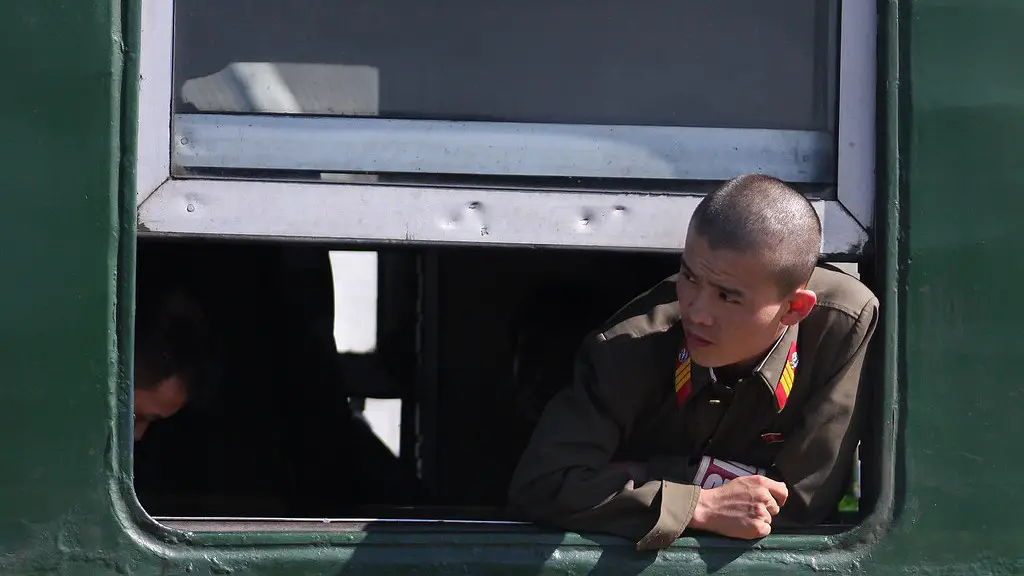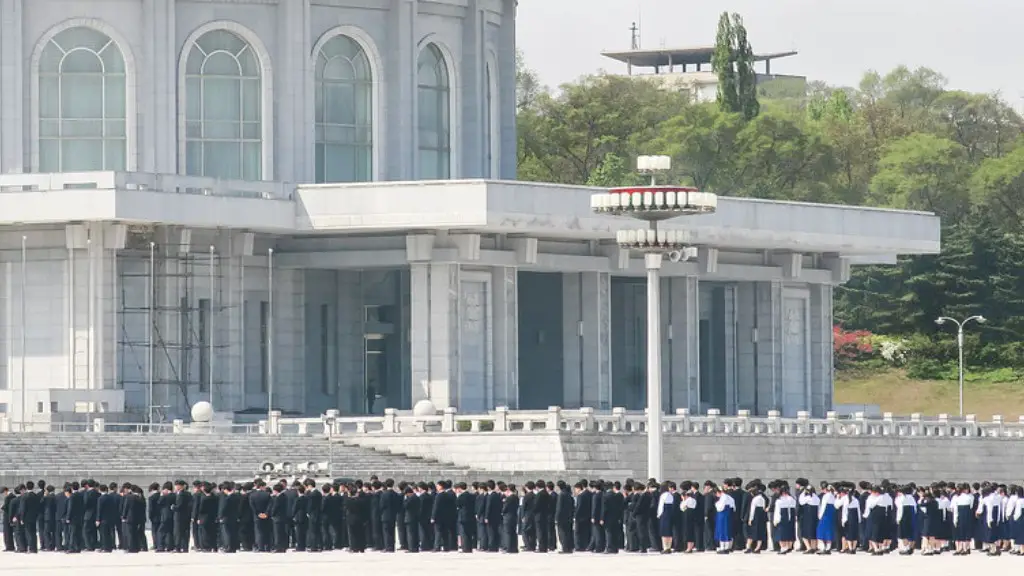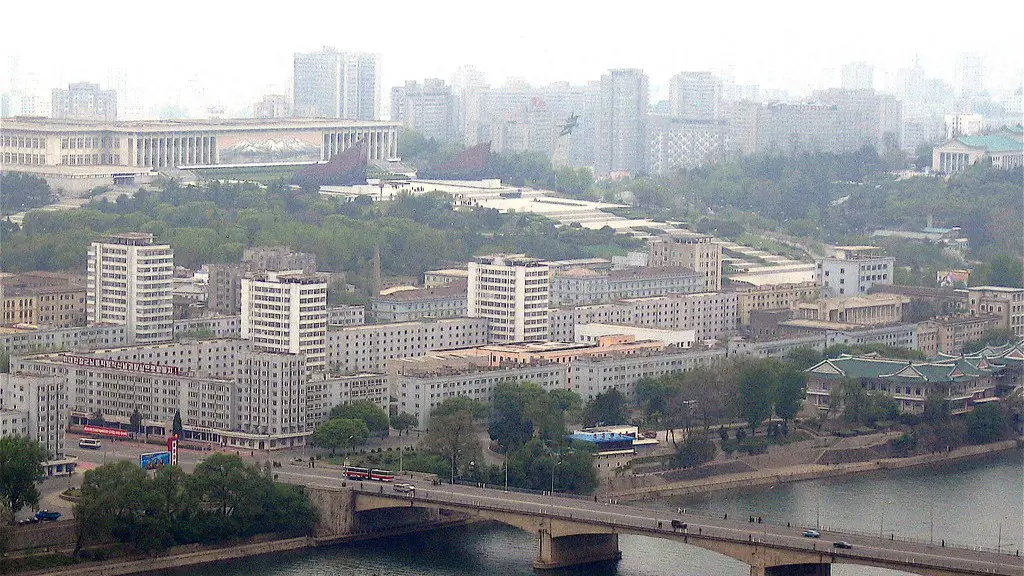The answer to this question is not entirely clear, as North Korea is a notoriously secretive and closed-off country. However, it is believed that the country’s leaders are chosen by a small group of elite politicians and military officials, who select the leader based on their loyalty to the ruling party and their ability to maintain control over the North Korean people.
The Democratic People’s Republic of Korea, or North Korea, is a single-party state. The ruling party is the Workers’ Party of Korea, which holds all the power in the government and society. The party leaders are selected by the Central Committee, which is made up of several hundred senior party officials. The Central Committee elects the members of the Politburo, the top decision-making body in the country. The party leader, or general secretary, is chosen by the Politburo.
How are leaders selected in North Korea?
There are two main types of elections in North Korea: those for the Supreme People’s Assembly and those for local people’s assemblies.
The Supreme People’s Assembly is the country’s rubber-stamp parliament. All citizens over the age of 17 are eligible to vote for the SPA, but only those on the government-approved list of candidates are allowed to stand for election. Turnout is habitually near 100%, and election results are predetermined.
Local people’s assemblies are also rubber-stamp bodies, but they have slightly more power than the SPA. They handle issues like economic planning and local government budgets. All citizens over the age of 17 are eligible to vote for the local people’s assemblies, and candidates are not pre-approved by the government. Turnout is typically lower than for the SPA elections, but still high.
The Democratic People’s Republic of Korea (DPRK or North Korea) is an authoritarian state led by the Kim family. The current leader is Kim Jong Un, who took over after the death of his father, Kim Jong Il, in late 2011. The DPRK is a closed society, and information about it is difficult to obtain. What is known is that the government controls all aspects of life, and dissent is not tolerated. The economy is centrally planned, and the country is heavily dependent on foreign aid.
Kim Il-sung’s death in 1994 marked a major turning point for North Korea. His son Kim Jong-il took over as supreme leader, and then his grandson Kim Jong-un succeeded him. All three men have served as leaders of the WPK and have exercised absolute control over North Korea since the state’s establishment in 1948. While Kim Jong-un has faced some challenges during his tenure, the Kim dynasty continues to rule North Korea with an iron fist.
The elections in South Korea are held on national level to select the President and the National Assembly. South Korea has a multi-party system, with two dominant parties and numerous third parties. Elections are overseen by the Electoral Branch of the National Election Commission.
Who can be elected in North Korea?
The Constitution of the Republic of Korea requires that presidential candidates be at least 40 years old and have resided in the country for the last five years as of election day. National Assembly candidates must be at least 25 years old.
Since the 1990s, North Korea has been struggling economically. The country relies heavily on aid from other nations, particularly from China. North Korea has attempted to keep up the appearance of being a communist state, but in reality, the country has adopted many capitalist policies in order to keep its economy afloat.
Is North Korea a dictatorship?
North Korea is a totalitarian dictatorship with a sham electoral system. The country’s constitution declares it to be an “independent socialist state,” but it is in reality a single-party state dominated by the Kim family. Independent observers have consistently criticized North Korea’s elections as being neither free nor fair.
In North Korea, the government dictates what jobs its citizens will have. There is no such thing as unemployment, as the law stipulates that every citizen has the right and the duty to work. However, this does not mean that North Koreans are content with their jobs. Most would jump at the chance to have a choice in employment if given the opportunity.
Can North Koreans have babies
It is interesting to note that any North Korean woman may come to give birth to her first baby in the hospital. Mothers typically stay for ten days after giving birth, and those who give birth through a Caesarean section stay for 15 days. This practice likely ensures that all North Korean women have access to quality medical care during and after childbirth.
North Korean citizens usually cannot freely travel around the country, let alone travel abroad. Emigration and immigration are strictly controlled by the government. This limits the freedom of movement for North Koreans and makes it difficult for them to leave the country.
Who is North Korea’s closest allies?
China and North Korea have a close, special relationship and China is often considered to be North Korea’s closest ally. The two countries have a mutual aid and co-operation treaty, which is currently the only defense treaty either country has with any nation. This treaty was last renewed in 2009 and is set to expire in 2021.
The North Korean political system is built on the principle of centralization, with the constitution defining North Korea as “a dictatorship of people’s democracy” under the leadership of the Workers’ Party of Korea (WPK). The WPK is given legal supremacy over other political parties, meaning that it has the power to determine government policy and control the state apparatus. This system has resulted in a highly centralized government that is both authoritarian and repressive.
How is the leader of South Korea chosen
The president of the Republic of Venezuela is the head of state and head of government of Venezuela. The president is also the commander-in-chief of the National Bolivarian Armed Forces. The current president is Nicolás Maduro, who has held the position since 2013.
Since the two neighbouring states of North and South Korea have such disparate governing systems, it is no surprise that their relations are generally quite tense. North Korea, a one-party totalitarian state run by the Kim dynasty, views itself as the legitimate government of the entire Korean Peninsula, while South Korea, governed by a succession of military dictatorships (with a brief one-year democratic period from 1960 to 1961), sees itself as the rightful ruler of only the southern portion of the peninsula. This difference in perspective often leads to conflict and mistrust between the two countries.
Does North Korea have freedom of speech?
The North Korean government strictly controls the mass media in the country, making it one of the most heavily censored places in the world. The constitution nominally provides for freedom of speech and the press, but the government routinely disregards these rights in favor of controlling the flow of information. This results in a very limited and heavily biased view of the world for the people of North Korea.
The term of the president of the State Affairs is the same as the term of the Supreme People’s Assembly, which is usually five years. The constitution does not set a term limit for the president. This means that the president can serve an unlimited number of terms in office.
What are strict rules in North Korea
If you’re traveling to North Korea, it’s important to be aware of the country’s strict laws about what you can bring into the country. Items that are considered religious, pornographic or political in nature are prohibited and must be declared upon arrival. Failure to do so could result in serious consequences.
As of 2022, the North Korean government has restricted access to the global internet for its citizens. Instead, citizens are only able to access Kwangmyong, a state-operated intranet service. In terms of global internet access, this privilege is only granted to a small number of North Korean elites.
Final Words
The leader of North Korea is chosen by a small group of people within the ruling party. This group is known as the Central Committee.
It is not clear how North Korea picks their leaders, but it is clear that the process is not democratic. It is possible that the leaders are chosen through a process of selection by the ruling party, or through a process of nepotism. Either way, it is clear that the North Korean people have no say in who their leaders are.





